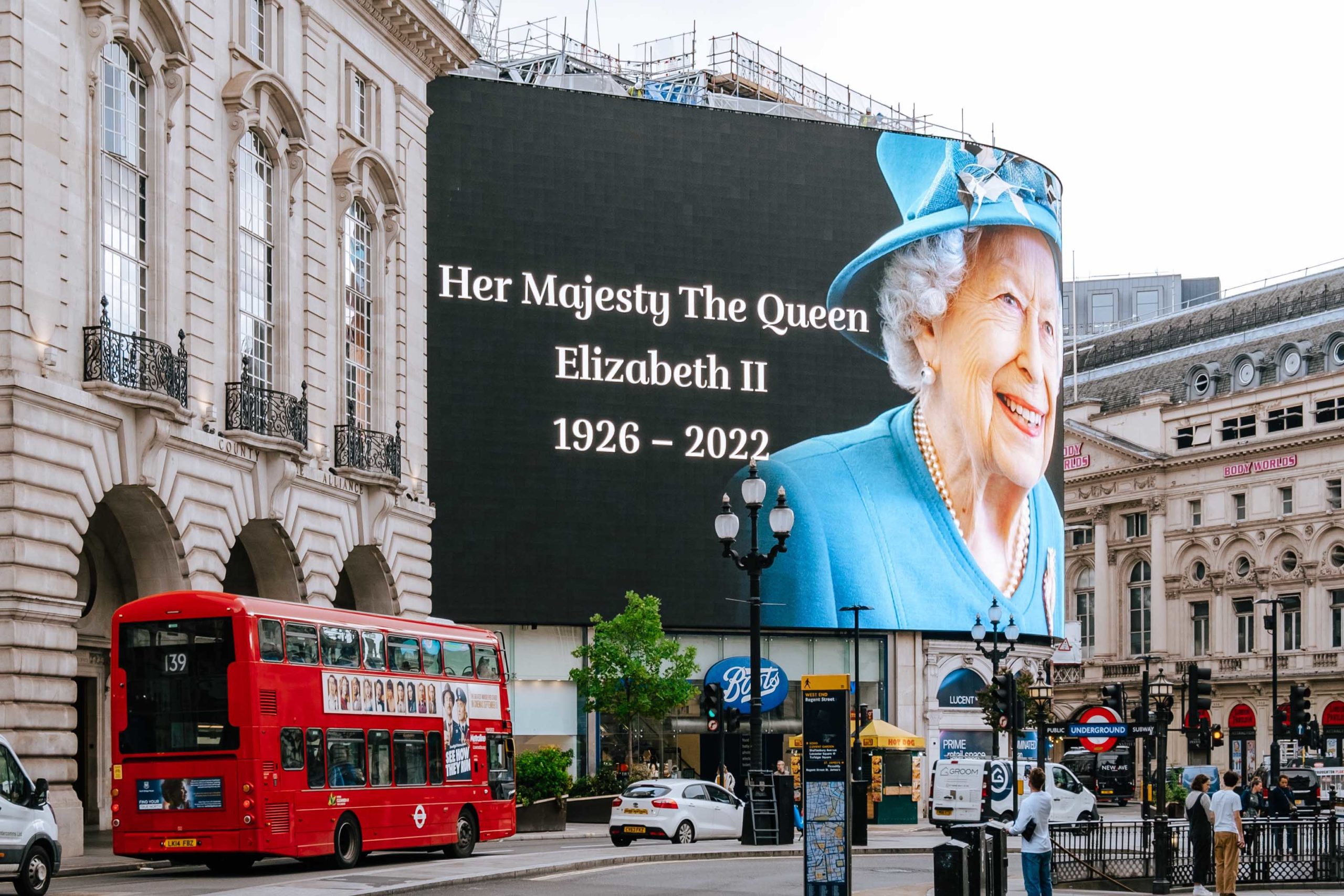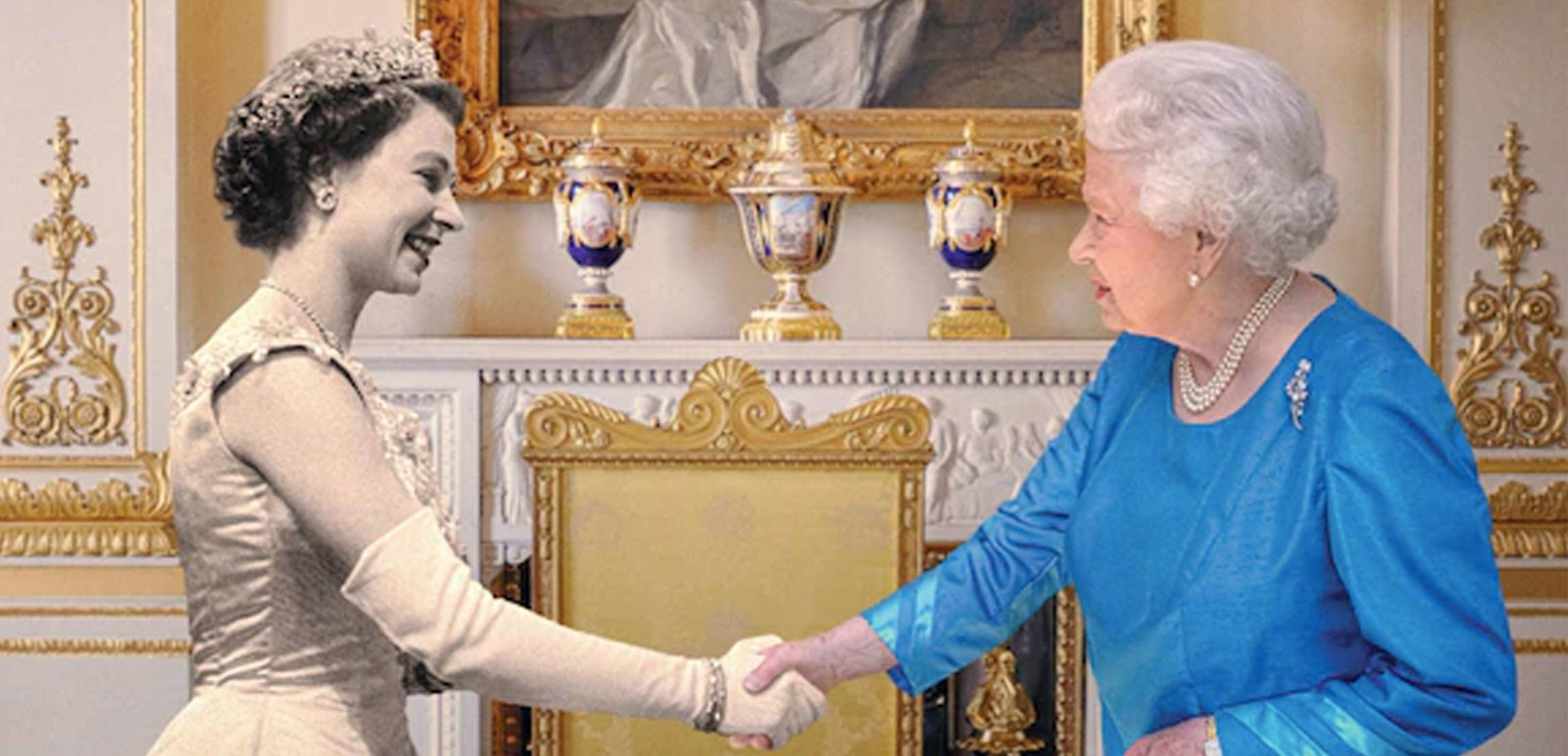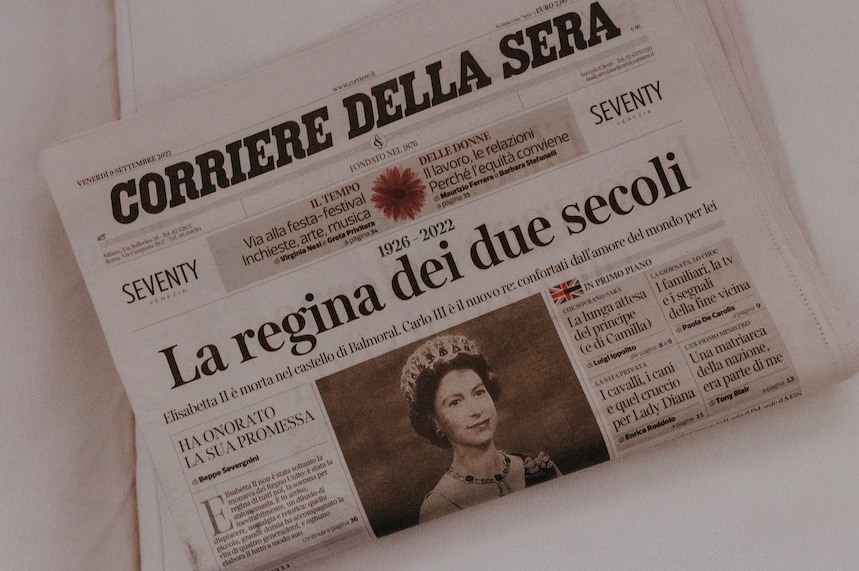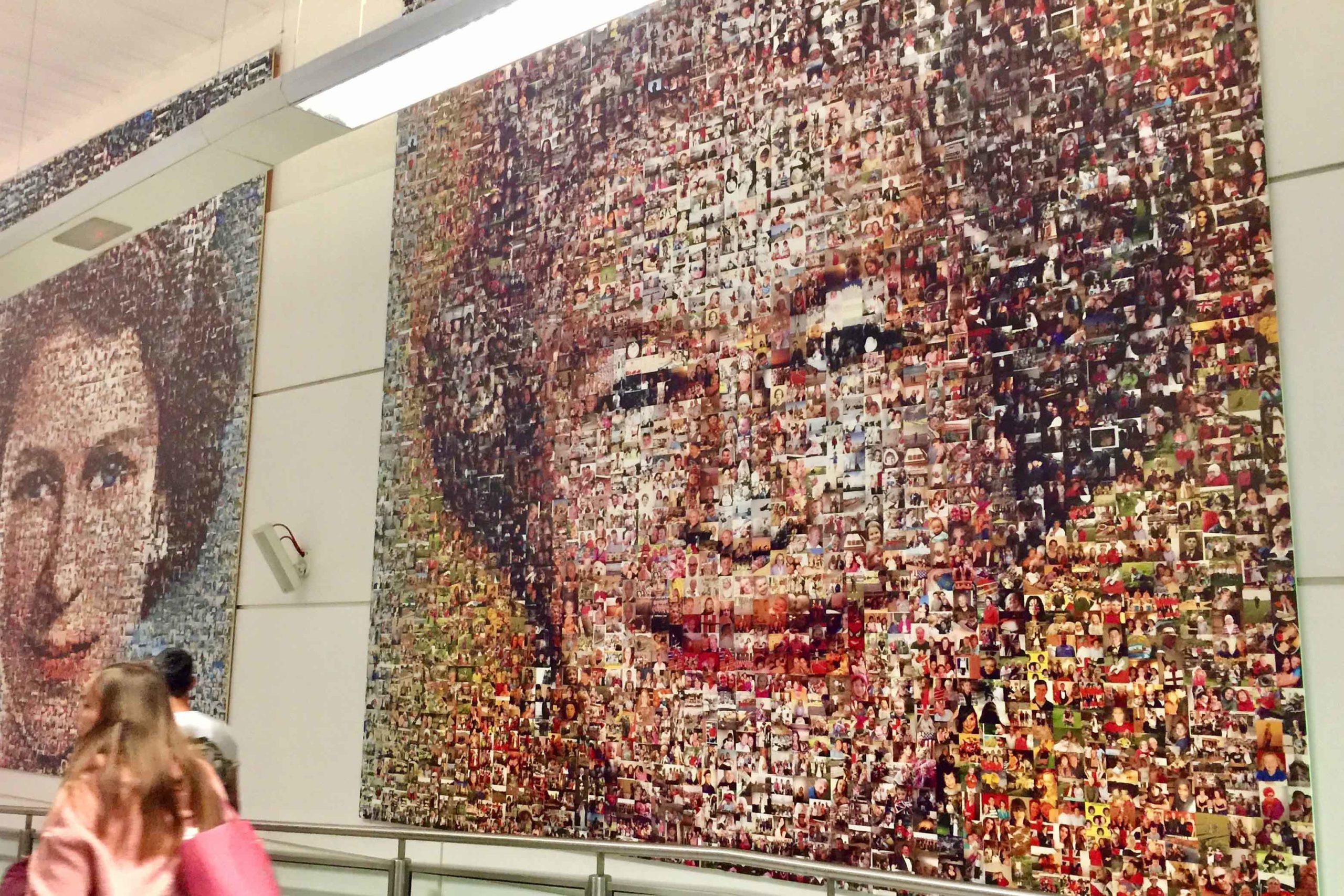
27 Sep 10 Useful Lessons in Life and Business from the Queen
Written by Prabjit Chohan-Patel
One of SHE Malta’s missions is to provide a platform for strong, hardworking, visionary, determined females. So it is only logical that we dedicate this month’s piece to one such woman (who also held a connection to Malta): Her Majesty the late Queen Elizabeth II (or simply the Queen as France’s president called her). Her remarkable longevity and unquestionable place as the world’s most widely recognised head of state is cause for reflection. As is the surprising impact of her death on many who do not actually support the monarchy and yet have been struck by the realisation they respected and admired the Queen herself.
Elizabeth Regina may not have been the founder of the British monarchy. She may not have acquired a university education or gained the mind-expanding benefits of independent travel. She may never have experienced the hardship of raising a family without a support network or known the challenges of struggling to make the next mortgage payment. She never had the character-building experience of living alone or suffered one awful night without a roof over her head.
Despite serving in WWII as a mechanic, she was not an ‘obvious’ feminist – indeed the Guardian’s Rachel Cook says “it would be preposterous” to do so. If she had lived another 96 years, society still wouldn’t have viewed the Queen as a ‘modern woman’. And given that this globally recognised icon was the very embodiment of establishmentarianism, she was hardly your typical agitator. Quite the opposite in fact: early on, Queen Elizabeth II decided that impartiality, diplomacy, compliance and non involvement in politics and external matters were to be the strategic cornerstones of her reign.
Indeed, there is so very much that Her Majesty – due to the extraordinary circumstances of her heritage and life – did not know, experience or do.
And yet, wherever we may stand on the pro/anti monarchy scale, nobody can deny that history’s second-longest reigning sovereign was one of the most prolific, respected and astute leaders. Ever.
And a successful businesswoman.
Yes businesswoman. Make no mistake… Originally not destined for the throne, Queen Elizabeth II found herself at the helm of the most known ‘family firm’ in history, evolving into its highly effective CEO helping to grow it, claims Vanity Fair, into an even bigger brand than Coca-Cola, Nike and Microsoft that generates an estimated $2.7bn of the UK’s $5bn annual tourism economy. The most internationally recognised symbol of Britain’s heritage and tradition did not merely hold a symbolic position…she led an active career.
It is therefore not surprising that her 70 years on the throne offer up plenty of wisdom and inspiration.

Image created by The&Partnership for the Platinum Jubilee
So here are 10 useful lessons in leadership, business – and indeed life – that can be drawn from this head of state’s reign.
1. Nobody starts a job as an expert. Learn the essentials quickly, find and listen to people you can trust and figure the rest out as you go along.
If the example of a sheltered, inexperienced 25 year-old being suddenly thrust into a position of unimaginable responsibility (while still reeling from the shock of bereavement), growing into the role and then calmly maintaining it for 70 years isn’t an incredible example of this, we don’t know what is! It’s worth noting that figureheads and politicians the world over have long recognised the Queen’s graceful handling of her challenging constitutional responsibility as well as her sound political knowledge – impressive feats for somebody who received no formal schooling.
2. Embrace change and don’t get too comfortable or complacent
Any business that has managed to keep going for decades or even over a century owes much of its success to its ability to evolve with the times and gauge its customers’ changing needs. So a woman who followed convention and whom many describe as a reassuring and familiar constant (“a changeless human reference point” as Boris Johnson said) wouldn’t usually be credited with reinvention and adaptability. (And it’s unlikely the Windsors would have undergone their tectonic shift from cold and stiff to warm and human if Diana had never come along). And yet the Queen approved initiatives to make the Royal family more relevant. The televising of her coronation despite disapproval by officials, a first of its kind Royal Family documentary, the famous walkabout, opening Buckingham Palace to the public and hosting garden parties are just a few examples of more accessibility and modernisation. Maybe the best evidence was her unexpected hilarious partnering with actor Daniel Craig for the London Olympics and her tea with Paddington Bear for her last jubilee; scenes previous monarchs would never have considered.
3. There are many ways to be a feminist
Born literally in another era, traditionalism ran through the Queen’s veins. And given how confined she was by constitutional limitations, it is easy to overlook her strength and independence. However, over seven decades, she embodied a ‘gentle’ feminism, navigating her way through the patriarchal obstacle course of strongwilled (often intimidating) male politicians, statesmen and officials. When Crown Prince Abdulla of Saudi Arabia – a country where women were not allowed to drive until 2017 – visited Balmoral in 1998, the Queen shocked him by getting in the driver’s seat of her Land Rover and driving him at high speed on a tour around the estate!
Despite avoiding statements favouring a particular ideology, she spoke of the “full potential of girls and women in society” at the 2011 Commonwealth Heads of Government Meeting and authorised a significant change to The Crown Act in 2013 allowing an older daughter of a monarch to assume the throne even if there is a younger son. Her 1966 Christmas speech was possibly one of her most feminist acts, stating how “custom has decreed that women should play a minor part in public affairs” reminding us that women in Britain were given the right to vote only 50 years after Parliament was first asked to grant it. “Yet, in spite of these disabilities, it has been women who have breathed gentleness and care into the harsh progress of mankind” were bold words for that time.

4. Actions often speak louder than words
Sometimes quietly leading by example can have more impact than actively declaring a viewpoint. Knowing when to say very little or say nothing at all can be a vital weapon in business. The Queen remained nonpartisan and careful about publicly expressing political opinion, making non reaction her trademark strategy.
For a female entrepreneur or leader, this can feel counterintuitive when women have spent years seeking a louder voice, wider visibility, higher position and greater credibility. Nevertheless the Queen made certain statements via her actions. Photos of her – a prominent white woman – dancing with President Kwame Nkrumah during her 1961 Ghana visit sent a powerful message given that apartheid was brutally in force in another part of the African continent. And her anti-protocol move – a first by a British sovereign – when she bowed her head to Princess Diana’s coffin was profound by its very nature.
5. Reaching the top shouldn’t make you lose the ability to relate to those under you
Despite cyclical highs and lows in public perception where she was viewed as out of touch and distant, the Queen sought to understand the circumstances and lives of ordinary citizens. Her civil and respectful way of talking to people endeared her to them. No matter how far you get professionally, connecting with employees and cultivating the ability to read a room and engage with the people in it are essential skills.
6. Use visual appearance to your advantage
Long before the world developed an obsession with Princess Diana’s fashion, the Queen used clothing to great effect. Whether in sumptuous gowns as a glamorous young queen, conservative dresses as a matriarch or entire colour-matched outfits as a mature stateswoman (the latter becoming her immediately recognisable brand image), she knew her choice of attire could subliminally remind people of her status. Rigid suits, crimson nails and shoulder pads may have gone out with the fax machine and many sectors now embrace a casual dress code. But a well thought out signature style can help you silently convey authority as a business owner or leader.

7. Establish your business’s purpose, know it confidently and live it.
Alluring packaging, clever marketing campaigns and slick corporate branding won’t bring success if you don’t keep your business’s purpose at the centre. They are diversions. While Charles’ bachelor years, Diana mania, weddings, jubilees and the adventures and courtships of younger royals undeniably added spark, excitement and intrigue to the Windsor ‘corporate identity’, the Queen simply focussed on her core purpose: service. She never lost sight of her Coronation Day promise and built an entire brand around duty, serving til the very end. Physically welcoming a new prime minister – while barely able to stand from serious illness – just two days before her death is an act of service that will forever define her as an outstanding leader.
8. Collaboration can be more productive than competition
Her observation “I know of no single formula for success but [ ] some attributes of leadership are universal and are often about finding ways of encouraging people to combine their efforts, their talents, their insights, their enthusiasm and their inspiration, to work together,” to the UN General Council in 2010 are food for thought. As is “Whatever life throws at us, our individual responses will be all the stronger for working together and sharing the load,” Ireland State Banquet 2011. Maybe this advice is needed even more now than ever.
9. If you’re going through hell, keep going.
This famous advice by the Queen’s first prime minister, Winston Churchill, could have been given by the woman herself. The loss of loved ones, Mountbatten’s assasination, scandals, divorces, explosive interviews, tabloid revelations, a fire, a break-in… The Queen was not immune to personal difficulty and trauma in her life. Yet somehow she endured, kept her moral compass and remained steadfast. It’s an inspiring example.
10. Slowly but surely wins the race.
“It’s worth remembering that it is often the small steps, not the giant leaps, that bring about the most lasting change.” This philosophy from the Queen’s 2019 Christmas Day broadcast is as applicable in life as it is in business…in fact, on so many levels that it could fill a separate article.
Whether these lessons delivered relevant parallels with your own aspirations and experience or simply provided some entertaining anecdotes, one thing is certain: the world has lost a dignified and noble individual – an influencer before the term was even invented – whose leadership style we may never see again.
“Each day is a new beginning, I know that the only way to live my life is to try to do what is right, to take the long view, to give of my best in all that the day brings.”
What wise words to end on.
Thank you, Your Majesty. Sleep well.


Sorry, the comment form is closed at this time.